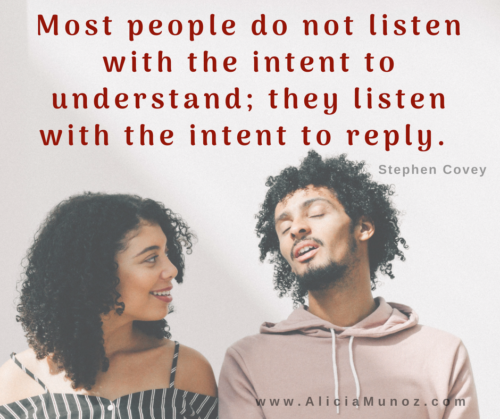
“You’re not listening!”
How often have you heard your partner utter this question in exasperation? How often have you said it?
We’re rarely taught how to listen, especially during times of conflict or stress.
Listening requires will and intention. It’s so much more than a moment of grace or a recurring impulse or something that happens on its own when we gaze at our partner in silence as they speak.
Though it can be easy to minimize its value and take it for granted, it serves us well to acknowledge the importance of listening. We must take time to re-calibrate the emphasis we give it in our conversations. Listening is the embryonic fluid that allows our relationships to gestate and develop.

Listening Can Bridge Our Emotional Divides
David Augsburger, author of Caring Enough to Confront, says, “Being heard is so close to being loved that for the average person, they are almost indistinguishable.” When we harness listening as a skill that we can call on and sustain, especially when it’s difficult, we create shifts in even the most seemingly unbridgeable emotional divides.
If we only understand and rely on the kind of listening that occurs spontaneously, in spurts, when our own thoughts aren’t eclipsing our partners’ words and perspectives, we’ll find ourselves stranded in the early stages of intimacy.

Listening tells the other person that what they have to say matters to us; that they matter to us. We respect them. We honor their feelings. We are willing to try to understand their perspective.
Listening Requires Quieting Our Ego
Listening has more to do with the quality of our attention and with our desire to be present for someone than it does with our ears being receptive to the sounds of words and their meanings. It can be supremely uncomfortable to temporarily suppress the thoughts that chomp at the bit of our self-containment, and yet, this is the prerequisite of true listening.

Our ego must go into temporary and at least partial remission. We can train ourselves to relax the urgency we feel to reflexively respond, and instead learn to contain our views and perspectives as we permit our partner’s fullness to unfold in their own words, in their own time.
The structured three-step Imago Dialogue helps you develop the skill of listening in a way that allows you to first tolerate, then accept, and eventually to honor the differences between you and your partner.
The Dialogue has three parts: mirroring (or active listening), validating, and empathizing. When one person speaks from the heart using I-statements and vulnerable language, the other person stays as present and connected to what is being shared as possible, engaging in the three steps of the process. They check in regularly to make sure that what they’re reflecting back, or validating, rings true to their partner, and that the words they choose when they imagine what their partner feels hit the mark and are received as empathy.
How Can We Learn to Listen Better?

We learn to listen gradually. Active or reflective listening is a simple practice we can engage in to listen better, like doing scales when you’re intent on mastering the piano. At the same time, it’s an advanced practice, like weaving those scales into a symphony.
Because it’s both easy and hard, practicing reflective listening can seem silly initially, like asking someone to practice breathing. And yet actively reflecting back, or “mirroring” what your partner says—even if only in your own mind as you focus on them—can help you deepen into a relational stance of honoring your separateness while acknowledging your interdependence.
Try it on a regular basis when your partner shares something. Set an intention to listen and be fully present, then rephrase some portion of what they just told you.
You might be pleasantly surprised by the new direction the conversation takes.







